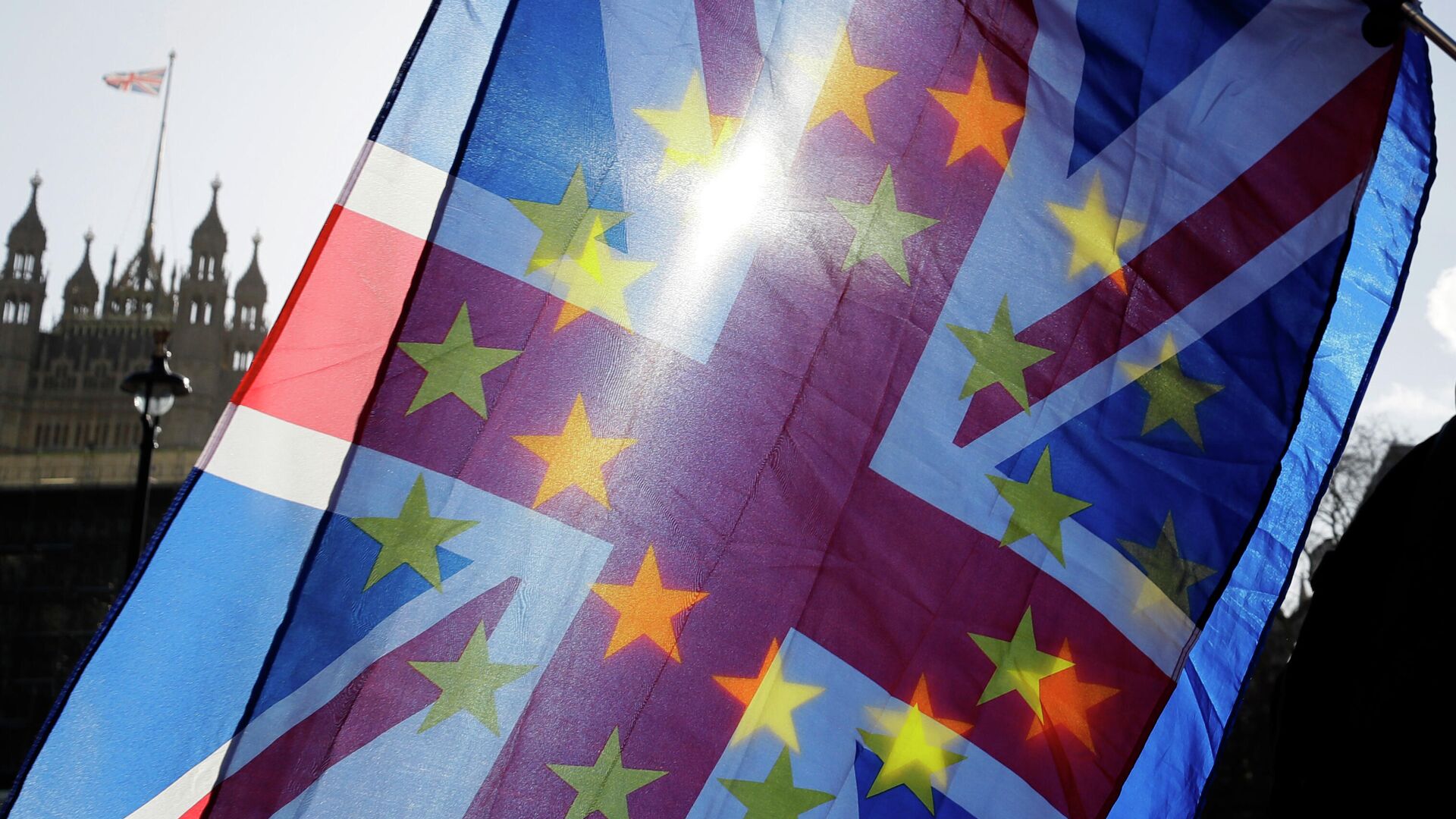https://sputnikglobe.com/20220622/brexit-increases-cost-of-living-in-uk-resolution-foundation-think-tank-says-1096571832.html
Brexit Increases Cost of Living in UK, Resolution Foundation Think Tank Says
Brexit Increases Cost of Living in UK, Resolution Foundation Think Tank Says
Sputnik International
MOSCOW (Sputnik) - Brexit exacerbates the rise in the cost of living in the United Kingdom, which leads to a slowdown in the economic growth, independent think... 22.06.2022, Sputnik International
2022-06-22T18:39+0000
2022-06-22T18:39+0000
2023-05-28T15:19+0000
brexit
cost of living
united kingdom (uk)
https://cdn1.img.sputnikglobe.com/img/07e6/01/1f/1092636343_0:119:3031:1824_1920x0_80_0_0_c79054f7c5cc3e858770ea12db53897f.jpg
According to the research, in the first stage, the UK's withdrawal from the European Union led to an increase in the price of imported goods due to the sharp depreciation of the national currency, while the growth of business investment slowed down.Prices for food, clothes, and shoes rose first of all, which significantly hit the purchasing power of citizens, the organization said.The pound’s depreciation also reduced wages for workers in sectors exposed to imports, the research noted, adding that the fall in the value of the pound also has contributed to increased costs for businesses on imported materials used in production, as the UK is deeply integrated into global supply chains.In the second stage of Brexit, after the signing of the trade and cooperation agreement between the EU and the UK, the openness and competitiveness of the UK economy suffered. The researchers noted that the country's trade openness rate fell by 8 percentage points between 2019 and 2021. Thus, the United Kingdom became the first large European country to experience a significant decline in openness from 2020 to 2021.In April, the annual inflation in the UK reached 9%, the highest rate since 1982.
https://sputnikglobe.com/20220621/uk-homeowners-to-face-significant-increase-in-mortgage-costs-reports-say-1096514355.html
united kingdom (uk)
Sputnik International
feedback@sputniknews.com
+74956456601
MIA „Rossiya Segodnya“
2022
Sputnik International
feedback@sputniknews.com
+74956456601
MIA „Rossiya Segodnya“
News
en_EN
Sputnik International
feedback@sputniknews.com
+74956456601
MIA „Rossiya Segodnya“
Sputnik International
feedback@sputniknews.com
+74956456601
MIA „Rossiya Segodnya“
brexit, cost of living, united kingdom (uk)
brexit, cost of living, united kingdom (uk)
Brexit Increases Cost of Living in UK, Resolution Foundation Think Tank Says
18:39 GMT 22.06.2022 (Updated: 15:19 GMT 28.05.2023) MOSCOW (Sputnik) - Brexit exacerbates the rise in the cost of living in the United Kingdom, which leads to a slowdown in the economic growth, independent think tank Resolution Foundation said on Wednesday.
According to the research, in the first stage, the UK's
withdrawal from the European Union led to an increase in the price of imported goods due to the sharp depreciation of the national currency, while the growth of business investment slowed down.
"The immediate impact of this fall in the exchange rate is an increase in the cost of living, making it more expensive for families to buy imported goods. Indeed, sterling’s fall was estimated to lead to a 2.9 per cent rise in the price level, effectively increasing the cost of living by 870 pounds," the research read.
Prices for food, clothes, and shoes rose first of all, which significantly
hit the purchasing power of citizens, the organization said.
The pound’s depreciation also
reduced wages for workers in sectors exposed to imports, the research noted, adding that the fall in the value of the pound also has contributed to increased costs for businesses on imported materials used in production, as the UK is deeply integrated into global supply chains.
In the second stage of Brexit, after the signing of the trade and cooperation agreement between the EU and the UK, the openness and competitiveness of the UK economy suffered. The researchers noted that the country's trade openness rate fell by 8 percentage points between 2019 and 2021. Thus, the United Kingdom became the first large European country to experience a significant decline in openness from 2020 to 2021.
In April, the annual inflation in the UK
reached 9%, the highest rate since 1982.


